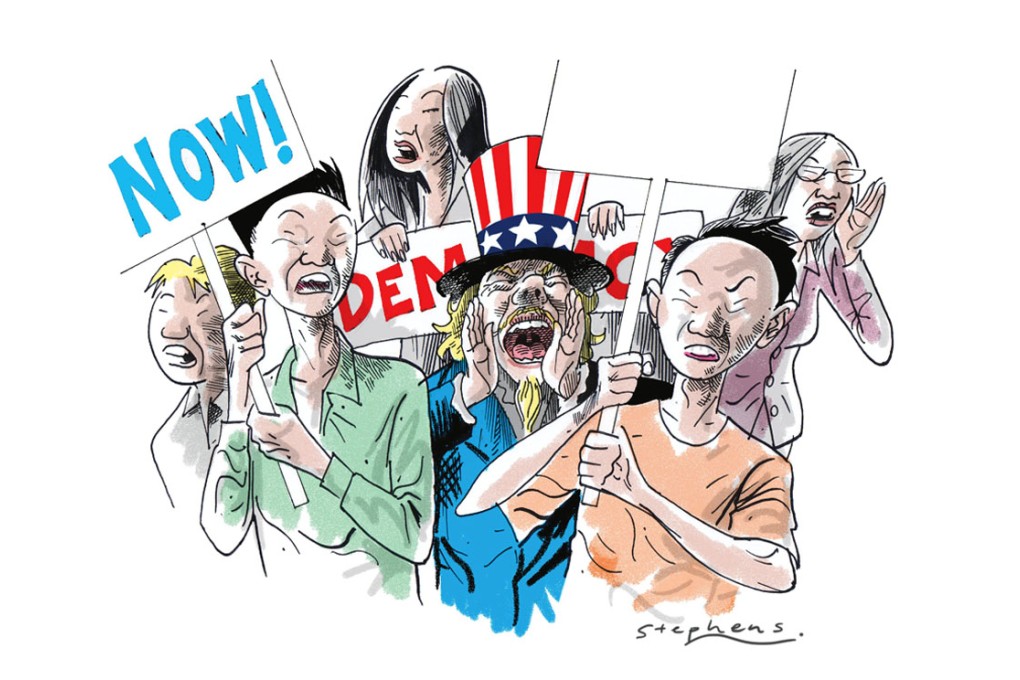How China's very real national security fears shaped its reform plan for Hong Kong
David Zweig looks at how China's worries about Western interference threatening its national security were the main motivation behind the decision to set strict limits on Hong Kong's political reform process

Some observers explain that the very restrictive nomination process for universal suffrage in 2017 directed by the National People's Congress Standing Committee was driven by the Communist Party's fear of losing power in Hong Kong and the demonstration effect on Chinese society.
However, an alternative explanation is Beijing's worries about national security. In the eyes of many Chinese government and party officials, "civic" nomination and a low threshold (under 15 per cent) for the nominating committee that would allow a pan-democrat to run would open the door to Western "interference" on China's sovereign territory.
Due to the problems in Xinjiang and Tibet and the fact that the Uygurs have brought their anger into Han China, spending on national security surpassed spending on national defence in 2011. As China also asserts its sovereign claims over disputed territories in neighbouring seas, it now finds a "re-engaged" US military supporting states that feel bullied by it.
Compared to on the mainland, foreign intelligence agencies freely collect information in Hong Kong and, according to WikiLeaks, diplomats regularly meet opponents of the central government.
Albert Ho Chun-yan, a leader of the Democratic Party and candidate for chief executive in 2012, told me that, in such meetings, he informs consular officials about the Democratic Party's plans but never receives strategic advice from them. Still, Edward Snowden's revelations have confirmed Chinese fears that the US collects intelligence in Hong Kong.
Chinese officials magnify such meetings as proof of US meddling in Hong Kong. After the massive anti-Article 23 march of July 1, 2003, Gao Siren, then director of the central government's liaison office here, made a ludicrous claim that all marchers received US$100 from the US consulate. The US consul general said he only wished he had US$50 million.
